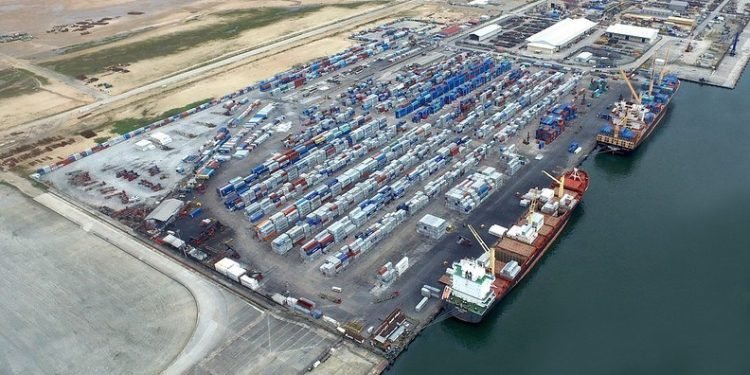By Maria Kalamatas | May 7, 2025
Lagos, NIGERIA —
As trade volumes surge across West Africa’s emerging markets, major ports from Lagos to Abidjan are struggling to keep pace, creating a container bottleneck that is reshaping regional maritime logistics—and forcing global carriers to recalibrate.
The Port of Lagos, one of the region’s busiest, recorded a 19% increase in container throughput in Q1 2025, according to data from the Nigerian Ports Authority. Yet vessel dwell times have nearly doubled, now averaging 12 days per call, due largely to capacity constraints and customs processing delays.
“We’re watching growth outstrip infrastructure in real time,” said Florence Adewale, Managing Director of Zenith Maritime Logistics. “The volume is there, but the ecosystem isn’t ready.”
Shipping lines reroute, add surcharges
In response, shipping majors including MSC and Hapag-Lloyd have implemented congestion surcharges of up to $450 per TEU on inbound cargo bound for Lagos and Tema. Several have rerouted vessels to avoid backlogs entirely, favoring secondary ports like Kribi (Cameroon) and San Pedro (Côte d’Ivoire).
“We now treat West Africa like a high-variability zone,” noted Javier Montoya, Regional Route Planner at BlueWave Ocean Lines. “Every week we reassess calls based on customs clearance rates, gate congestion, and road access.”
Inland logistics under pressure
It’s not just the ports. Inland haulage, already impacted by fuel price volatility and weak road infrastructure, is compounding the crisis. Shippers are reporting delivery lags of up to 10 days for container movement between port and warehouse.
“The moment your container lands, the real wait begins,” said Bernard Koffi, Warehouse Director at GlobalAgri Côte d’Ivoire. “We’ve had reefer units expire in port because trucks simply couldn’t reach us on time.”
Private investment, public inertia
While some progress is visible—like the Lekki Deep Sea Port in Nigeria, which opened partially in late 2024—the overall pace of infrastructure expansion remains slow. Much of the development is being driven by private consortia, with limited coordination from public agencies.
“There’s no unified corridor strategy,” explained Abou Diop, logistics policy advisor at ECOWAS. “Each country is building in isolation, and we’re paying for it in fragmentation and cost.”
The future: micro-hubbing and regional hubs
To mitigate the disruption, some logistics operators are experimenting with “micro-hubbing”—establishing container transfer zones just outside congested port perimeters to facilitate quicker offloading and inland routing.
Others are betting on Dakar, Lomé, and Cotonou to emerge as alternative gateways for specific commodities or industrial flows.
“In this region, resilience will come from optionality,” Adewale concluded. “If you rely on one port, one road, or one process—you’re already behind.”























